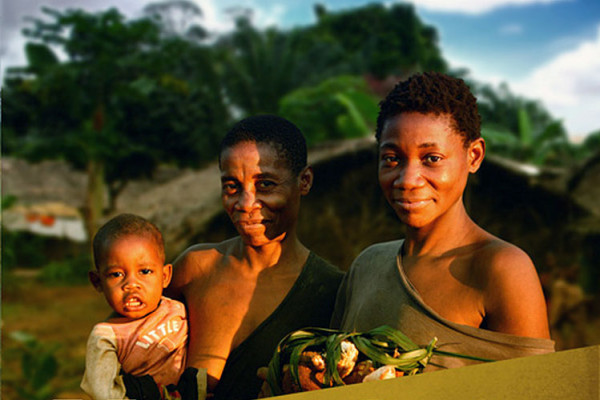The knowledge and traditional practices of indigenous people and local communities are key to halting biodiversity loss and achieving sustainable development, a United Nations official on 7 October 2014 stressed at a major meeting on biological diversity in Pyeongchang, Republic of Korea.
“The collective work conducted by indigenous groups and local communities represents a major contributor to achieving the CBD’s main objectives and the Aichi biodiversity targets,” said the Executive Director of the Convention on Biological Diversity (CBD), Braulio Souza de Dias.*
“Indigenous people and local communities have been for millennia the custodians of biodiversity but their rights have not always been recognized,” Dias said in a press briefing at the 12th meeting of the Conference of the Parties to the Convention, known as COP-12. “We need to urge governments to recognize this as well as their exclusive rights to land and natural resources.”
The 20 biodiversity targets were agreed on by the CBD in 2010 in the Japanese city of Nagoya in Aichi prefecture. They include halving the rate of habitat loss, expanding protected land and marine areas, preventing the extinction of threatened species and restoring at least 15 per cent of degraded ecosystems by the year 2020.
Mr. Dias expressed his support for a publication released today by the ICCA Consortium, an association that promotes the recognition and support to Indigenous Peoples and Community Conserved Areas and Territories (ICCAs). The Aichi Targets Policy Brief outlines how indigenous communities can contribute to achieve each of the Aichi targets.
A young child plants a seedling in the dirt. (Image used under license from Shutterstock.com) | Source: UN
“We need to build on this report and see how we can further document and demonstrate their contributions to the implementation of each of these targets, as well as the economic value of these efforts,” Dias said, adding that many countries are already working with these groups in various ways such as by co-managing protected areas.
“Indigenous people are the earliest conservationists in the world, and they continue to be conservers but they are facing serious threats,” said Ashish Kothari of the ICCA Consortium, and the Indian environmental organization Kalpavriksh.
“The report points out how all of the CBD targets are already being met by indigenous peoples, and if they are given further recognition and support their contributions can be significantly enhanced.”
Kothari stressed that much more needs to be done by countries to legally recognize the right of indigenous groups to territories and their customary forms of decision-making, which allow them to preserve their ecosystems.
“CBD is a crucial forum for being able to articulate these issues for indigenous people,” he said.
“We issue an urgent plea through the COP12 to CBD parties that in order to meet the Aichi targets this is really one of the world’s best options and best bets for being able to do that. Business as usual will not help us achieve the Strategic Plan for Biodiversity 2011-2020 but we stand a much better chance if we focus on the input of indigenous and local communities.” (*Source: UN Release).
2014 Human Wrongs Watch











